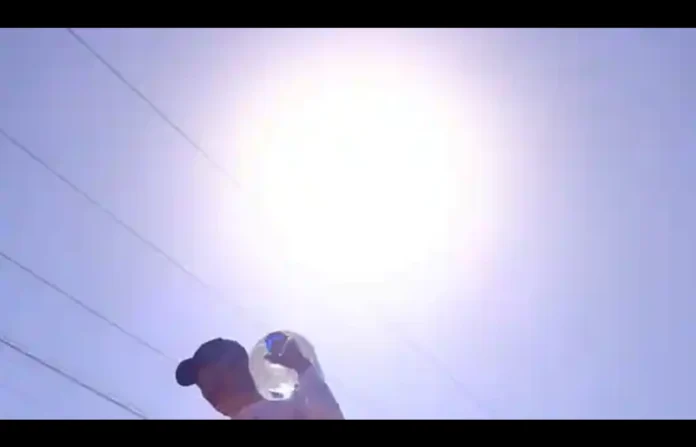As scorching heat engulfs several states in North India, medical professionals are raising concerns over the well-being of the elderly population. With temperatures reaching alarming levels, health experts are advising individuals aged 60 and above to remain indoors and take necessary precautions to avoid heat-related illnesses. As heatwaves continue to wreak havoc, prioritizing the safety of vulnerable individuals becomes imperative.
The current heatwave has been described as unprecedented, with temperatures soaring to unbearable heights in various parts of North India. In response to this alarming situation, doctors and healthcare specialists are urging senior citizens to stay indoors and minimize exposure to extreme heat. The elderly are particularly vulnerable to the adverse effects of high temperatures due to age-related physiological changes and underlying health conditions. By taking proactive measures, such as staying hydrated, wearing light and breathable clothing, and using cooling techniques like fans and air conditioners, seniors can significantly reduce the risk of heat-related ailments.
Medical experts emphasize the importance of recognizing the early signs of heat exhaustion and heatstroke. Symptoms such as dizziness, rapid heartbeat, excessive sweating, nausea, and confusion should not be ignored, as they may indicate severe heat-related conditions. If any of these signs are observed, immediate medical attention should be sought. Family members and neighbors are also encouraged to regularly check on elderly individuals living alone to ensure their well-being during this challenging period. Moreover, healthcare providers are emphasizing the significance of creating a supportive environment for the elderly.
Communities, local authorities, and non-profit organizations are urged to establish cooling centers and shelters equipped with adequate facilities to accommodate seniors who may not have access to air conditioning or proper living conditions. It is crucial to foster a collective effort in safeguarding the elderly population from the dangerous consequences of the ongoing heatwave. Government authorities are advised to issue heatwave alerts, disseminate information through various channels, and deploy medical teams to affected areas. Raising public awareness about the importance of heat safety measures, especially for the elderly, is vital. Additionally, authorities should ensure an uninterrupted supply of electricity and clean drinking water to enable individuals to combat the intense heat effectively.
As the heatwave continues to grip North India, medical professionals stress the need for urgent action to protect the elderly from the scorching temperatures. By adhering to the advice of doctors and implementing preventive measures, such as staying indoors, maintaining hydration, and keeping cool, senior citizens can minimize their vulnerability to heat-related illnesses. It is a collective responsibility of individuals, communities, and the government to prioritize the safety and well-being of the elderly during this challenging time. By acting swiftly and decisively, we can mitigate the adverse effects of the heatwave and ensure a healthier and safer environment for all.


